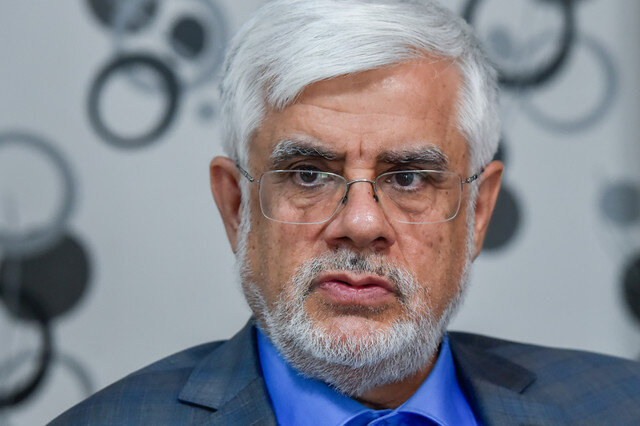Politician sees management instability as main hurdle for economic and technological progress

TEHRAN – A member of the Expediency Council chiefly blames an instability in management system for economic and technological inefficiencies in Iran, saying in countries in which there is stability in management system the manager knows that he will not be dismissed because of differences with his superior and this encourages him to take “brave” decisions.
“Unfortunately, in certain cases we have returned to the past because of management instability,” Mohammad Reza Aref told ISNA in an interview published on Sunday.
Aref, who acted as vice president from 2001-2005, says a manager who starts a work and advances it to a certain degree it will be reversed by the next manager and this does not happen necessarily with a change in government.
“We start from one point and reach another point but the next manager, who is not necessarily a manager of another government and is appointed by the same government, does not continue that path,” Aref regrets.
Aref, currently chairman of the Hope Foundation of Iranians, says in such a situation manger just wants to set a record for himself and does not have a “long-term view”.
He adds, “The building is crumbling but we paint it in order protect its façade.”
“Now in the fifth decade of the (Islamic) revolution which is the decade of maturity of a political system we should focus on science and past experiences so that we can overcome problems,” notes Aref, who was the chief of the parliamentary Hope faction in the previous parliament.
The new director, he says, instead of continuing his predecessor’s work and resolve problems in the process of doing the job, he just wants to say what “I have done and not what we have done.”
He suggest there is no solution other than seeking the experience of others.
“How much do parliament representatives hold consultation talks with former representatives or how many ministers ask the views of former ministers?” Aref asks.
It is natural when mangers do not use the experiences of Iranian mangers there will be no effort to seek the experiences of foreigners, the former vice president remarks.
“We have not developed a culture to make use of others’ experiences while it is a necessity to make use of the experiences of other countries in tandem with the situation of our country.”
The former official goes on to say wherever successive managers have made efforts to continuously push ahead with a project the country have made progresses. The former vice president cites non-technology as an example.
For example, he says, in 2003, when he was vice president, a center for developing nanotechnology was established and set a policy that Iran should be among the first 15 countries in this field within 10 years and now Iran has a “single-digit” ranking in the world.
“In my view the most important reason for this success in this sector was management stability and the attention of the next governments to the targeted goal,” stated Aref, who holds PhD in electrical and communication engineering from Stanford University.
He suggests this achievement in nanotechnology can serve as an example of management stability.
Prioritizing nanotechnology has led to Iran’s steady placement among the five pioneers of the nanotechnology in recent years. There are 227 companies in Iran registered in the WoS databases, manufacturing 419 products, mainly in the fields of construction, textile, medicine, home appliances, automotive, and food.
Instead structural reforms “we have been replacing individuals,” Aref says.
Such an approach in management system has even made the public to expect “slogans”, he opines.
The former official also sees lack of enough attention to the talented persons among the reasons for managerial problems.
Aref, who ran for president in the 2013 but withdrew at the last hours, cites hollow slogans as one of other reasons for inefficiencies, saying candidates make promises which cannot be materialized.
“Usually in elections promises are given which definitely cannot be realized,” he notes.
Presidential or parliamentary candidates give slogans which is actually show they do not have information about “resources and incomes” and there is a great gap between “their promises with the performance”.
He adds, “If plans are crafted based on realities then there will be efficiency.”
Mostapha Hashemi Taba, a candidate in the 2017 presidential candidate, also says governments, especially presidential candidates envision “utopia” for the people while it is not actually possible.
If a government wants to prove that it is competent it should provide logical and achievable and not idealistic answers to demands of the public, Hashemi Taba tells ISNA in an interview published on Monday.
For example capable government should give logical answers how social welfare, environment, economic system, international relations with the outside world, adds Hashemi Taba, a former chief the Physical Education Organization.
Expecting extraordinary things from officials is just a “mirage”, he comments.
PA/PA
